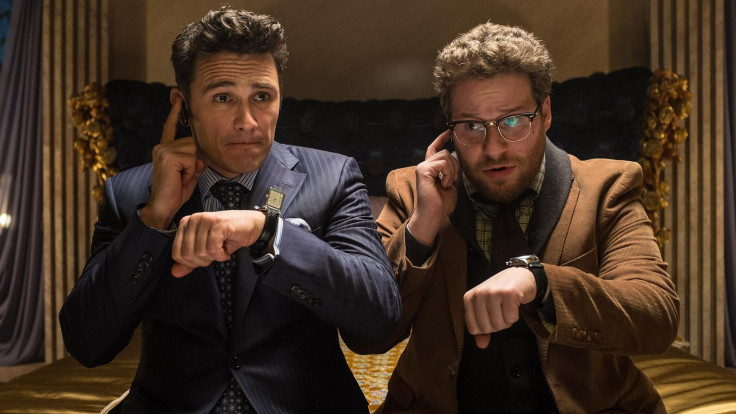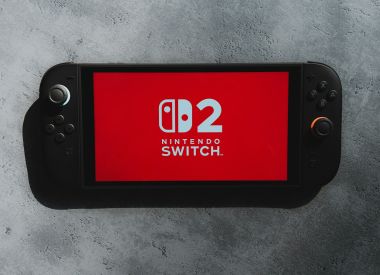Seth Rogen and James Franco, from the new movie “The Interview,” are wrong about reporting produced from the Sony hack. Rogen and Franco appeared on Howard Stern on Monday, Dec. 15 to discuss their new movie “The Interview,” the ostensible target of the Guardians of Peace hacker group that has been dumping Sony Pictures internal data on torrent sites. The Sony hack, a story worthy of “Black Mirror,” has thrown Rogen and Franco into the middle of a controversy over cyber warfare, corporate security, and journalistic ethics. On “The Howard Stern Show” the duo claimed reporting on the Sony hack gives the hackers “exactly what these criminals want,” comparing the media to a pawnshop that fences stolen goods for organized crime, “directly profiting” from “stolen information.” While it’s an arresting image, maybe even one with a kernel of truth, here’s why Seth Rogen and James Franco are wrong about media reporting on the Sony hack.
'The Interview' Final Trailer
The Sony Hack and Access Journalism
It all begins with access journalism. Access journalism is when a journalist needs to be granted access to information by the subject of its reporting in order to do his or her job. Reporting fields that rely on information about new products are especially susceptible to access journalism, including gaming, movie, and tech reportage. For secretive projects, like the next “Star Wars” or iPhone, journalists are often at the whim of what the corporation wants seen.
Information obtained by internal sources, snooping, and, yes, data hacks are a small portion of the reporting done in these fields, often couched as “rumor.” Even this small percentage of reporting that falls outside of the corporation’s desire can be risky, because the corporation can punish journalistic outlets by cutting off access.
The best example in recent memory would be Gizmodo’s reporting on the iPhone 4. After purchasing a misplaced (or possibly stolen) pre-release iPhone 4 they produced a flurry of reporting that infuriated Apple. The reporting turned out to be surprisingly controversial, but this quote from Joel Johnson, formerly of Gizmodo, sums up why reporting beyond the confines of access journalism is so important: “If you think that Gizmodo shouldn't have shown you the iPhone before Apple wanted you to see it, you're accepting that Apple should be the one to control news about its products.” The message is simple. Access journalism is a lamentable necessity of reporting on tech or entertainment industries: a bug rather than a feature for certain segments of the press.
'The Interview' and Newsworthiness
Seth Rogen and James Franco's own upcoming movie, "The Interview," demonstrates the absurdity of their premise. In "The Interview" journalists are granted access to a criminal regime attempting to massage its image. Is it wrong to interview Kim Jong Un under those conditions? Or is the agenda of the source inapplicable to the merits of the news?
Apply the same Rogen and Franco Sony hack journalistic standards to other news fields and the absurdity of their position becomes clear. Reporting on the Pentagon Papers, the Snowden NSA leaks, and the Chelsea Manning “War Logs” Wikileaks documents are all “directly profiting” from “stolen information.” For that matter, any reporting on war or terrorist attacks is “directly profiting” from violence and criminality. The Sony hack has nothing on these landmark journalistic moments, but the same standards can be applied across multiple fields.
The standard for what should be reported is not the nature of the source, but the newsworthiness of the information. Here, the standard is clear. No one questions whether or not a press release from Sony announcing casting decisions for the new Bond movie is newsworthy. The announcement of nothing but a name, “SPECTRE,” generated a flurry of reporting from every corner of the Internet.
Information about upcoming movies has already been determined to be newsworthy.
To say that information from press releases is newsworthy, while information pulled from unauthorized sources is not newsworthy is to consign journalistic practice to the exact bounds preferred by the corporations controlling access. By not reporting on newsworthy items from the Sony hack, journalists are as much as admitting that their proper role is as access journalists, only reporting what they are told to report.
Sony Hack and the Real Journalistic Standard
This Sony hack has been incredibly interesting and at the same time an ethical mine field. http://t.co/Yj7qO1FGKQ
— Kevin Dent (@TheKevinDent) December 12, 2014Facts lack an ethical agenda, even if the Sony hackers have their own. Newsworthy facts produced from the Sony hack are unburdened by the motivations of the hackers. “The Interview” stars, James Franco and Seth Rogen, have set their standards in the wrong place. The debate is not whether or not hacked information should be the basis of reporting, the debate is whether or not specific information is newsworthy.
Has anything newsworthy been produced from “The Interview” Sony hack attack? Of course. Just look at Project Goliath. Is there any journalist who could argue that knowing this information isn’t in the public interest?
Proud of reporting by @verge team on Project Goliath and transparency of our ethical basis http://t.co/xJaQDMxxkU http://t.co/Uvdb9U1z2R
— Jim Bankoff (@Bankoff) December 16, 2014It is possible to produce unethical reporting from the Sony hack. Publishing names of employees, social security numbers, or other personal data is a violation of personal privacy. But anything that would be newsworthy from an anonymous source doesn’t stop being newsworthy if it emerges from the Sony hack.
The Sony hack information exists for anyone to download. The dissemination is done. To argue that writing about it is somehow unethical, or supporting of criminality, is to argue that the entertainment press has no place in discussing reality: that they must remain a separate fantasy land, where only the most stultifying information is analyzed and the most controlled opinions aired.
If entertainment journalists are expected to only publish information about movies that is passed down from PR wings within the movie studios, then what is their purpose?
With the hack attacks on Sony and “The Interview,” Seth Rogen and James Franco have every right to comment upon the public reaction to the criminal hacks. This time they got it wrong.
Disagree? Let me know in the comments or @AndWhalen.


















